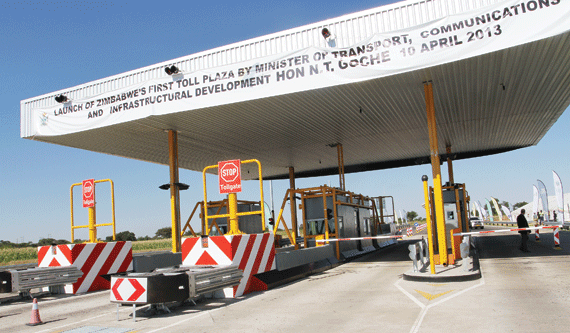
THE decision by the Zimbabwe Lawyers for Human Rights (ZLHR) to drag Transport and Infrastructural Development minister Obert Mpofu to court over the recent tollgate fees increase is a timely intervention.
Mpofu’s ministry early this month unilaterally increased tollgate fees by 100% despite advice from the same lawyers that consultations were necessary for such a drastic move.
The increase in the fees, coming at a time when Zimbabweans are battling a serious economic downturn, would inevitably trigger a hike in transport fares and prices of basic commodities.
ZLHR wants the High Court to order Mpofu to reverse the new fees so that he can do a “transparent and reasonable” review if necessary.
The lawyers accused Mpofu of introducing the new fees “without even caring to consult the general motoring public and ignoring the fact that it was exacting unduly punitive toll fees”.
Mpofu first announced that the government would double toll fees early last month and that tollgate fees were going up to enable the government to maintain roads.
His announcement was greeted with anger and derision nationwide.
However, the minister went on to seek approval from Cabinet to hike tollgate fees and he said the money was intended for the rehabilitation of the country’s major roads.
- Chamisa under fire over US$120K donation
- Mavhunga puts DeMbare into Chibuku quarterfinals
- Pension funds bet on Cabora Bassa oilfields
- Councils defy govt fire tender directive
Keep Reading
The arrogance displayed by the government in proceeding to impose the tollgate fees is an irritating habit that would only take the bravery of organisations such as ZLHR to stop.
Mpofu and his ministry have for a long time ignored calls by Zimbabweans to account for money collected from tollgates so far before seeking an increment.
The reason motorists are resisting the new toll fees is because they are not convinced that the money they are paying is being put to good use.
Most of the country’s roads remain in a very poor state and the government needs to explain why this is so when motorists are now paying to use the country’s major roads.
More importantly, the High Court case would teach the government to never take tax payers for granted by acting unilaterally.










